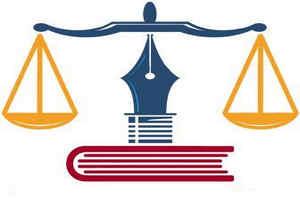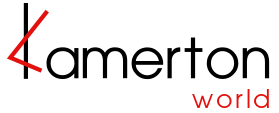
Vices of the judicial system
Applying principles of epistemology
Reforming the judicial system
The basic procedures of modern legal proceedings differ little from medieval ones.
Ideologists of the judicial system believe that its traditional nature strengthens society's faith in its justice. Therefore, they dress judges in robes and wigs and preserve informal, oral procedures of legal proceedings. They use juries, apply archaic laws, use precedents.
This greatly increases the duration of trials, their costs, and the likelihood of erroneous decisions.
Also, this greatly increases the need for lawyers' services and their fees.
Therefore, the legal community is interested in preserving this vicious system.
An ineffective judicial system worsens business conditions and increases conflict in society.
The main problem of modern courts is the ignoring and widespread violation of epistemological principles :
– Materials of judicial proceedings should be presented in a discrete format of separate text descriptions of the properties of objects and events of claims and accusations;
– These materials should not contain errors – incorrect terms, logical contradictions, and inconsistencies with the facts;
– In judicial debates, the goal of defendants is to identify errors in the materials of claims (accusations) against them and in the arguments of the plaintiffs;
– In judicial debates, the goal of plaintiffs is to identify errors in the arguments of defendants;
– Judges must evaluate the controversial arguments of the parties to the proceedings, establish the presence of errors in them, and make decisions depending on the errors identified.
Thus, judicial proceedings should take place mainly through the exchange of textual arguments between the parties to the proceedings via the Internet.
The use of epistemological principles and computer technologies minimizes the flaws of the judicial system and optimizes the efficiency of legal proceedings.
Minimization of oral procedures and formalization of debates reduce the duration of the process, their costs, and the likelihood of erroneous court decisions, as well as attorney services and fees several times.
This method of legal proceedings makes it possible to effectively resolve disputes due to relationships on the Internet – between buyers and online stores, clients and online banks, payment systems, etc., due to the dissemination of false, defamatory, confidential information, copyright infringement, etc.
Publishing trial materials on the Internet allows society to effectively monitor the fairness of court decisions.
The discrete format, comparison of formalized arguments of the parties to the process, and judges' decisions on errors in individual controversial arguments make it as easy as possible for the general public to study court materials.
To prevent falsification of archived trial materials, they can be stored in blockchain format by many members of the legal community.
During the evolutionary transition from the current technology of legal proceedings to computer technology, these technologies will be used in parallel.
Old judges will be able to use the new technology at their discretion.
New judges will be required to use the new technology.
Where possible, defendants will select judges based on the technology they use.
As old judges retire, the courts will gradually switch to the new technology.
The future effective judicial system will consist of three parts : state, commercial, and civil courts.
State courts judge disputes (charges) between state bodies and civil individuals and legal entities.
Commercial courts resolve disputes between enterprises.
Civil courts judge disputes between individuals and legal entities.
State judges are elected by regional legal communities from candidates nominated by regional authorities and are dismissed by decisions of authorities and legal communities.
Commercial judges are elected and dismissed by decisions of the relevant regional business communities.
Civil judges are appointed and dismissed by decisions of the relevant regional legal communities.
The National Community of Judges elects members of the Supreme Court from candidates nominated by the Supreme Authority.
Regional communities of judges elect members of regional courts from candidates nominated by regional authorities.
The Supreme and regional courts issue methodological recommendations on the interpretation of laws based on an analysis of judicial practice.
The Supreme and regional courts hear appeals and also disputes involving relevant government agencies.
The Supreme and regional courts repeal archaic laws that have lost their relevance.
Civil and business associations (communities, associations, communities) can create their community courts to resolve disputes between their members. Their activities comply with civil legislation. Such courts can operate via the Internet.
Case law is an anachronism.
Courts will judge according to laws, but not precedents.
Supreme and regional courts will use precedents when drafting methodological recommendations.
The institution of the Jury is an anachronism.
Most jury members are housewives, old people with impaired hearing, vision, and intellect, and citizens who were forcibly recruited. They are far from jurisprudence and easily succumb to the demagogic manipulations of lawyers and prosecutors. They make decisions based on instilled emotions.
The probability of their erroneous decisions is higher than the probability of mistakes by judges.
Therefore, the institution of the Jury will be abolished.
Only professional judges will make decisions.
The main social force that is objectively interested in reforming the judicial system and has the necessary resources to influence the political elite is Big Business.
The majority of the legal community will sabotage judicial reforms.
Therefore, the first step towards these reforms will be the creation of a scientific think tank that will draft the reforms and promote them.
E. Gershman
linkedin.com/in/eugene-gershman
- Войдите или зарегистрируйтесь, чтобы оставлять комментарии
- 40 просмотров







